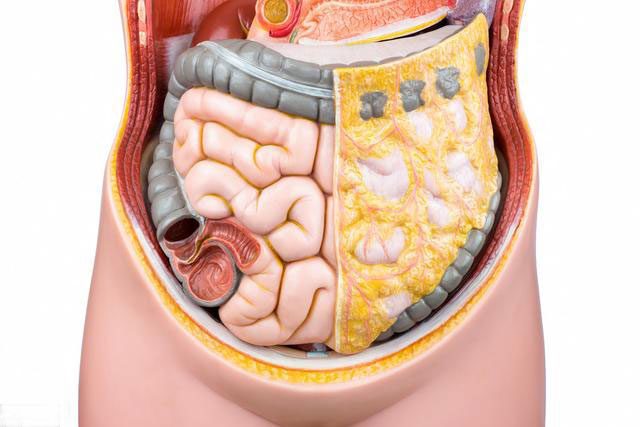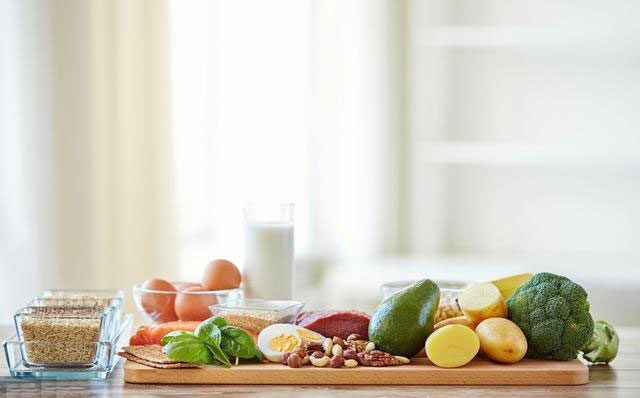For a healthy lifestyle, a reasonable diet and balanced nutrition are indispensable. Although more and more people have learned about the benefits of dietary fiber, they find it difficult to consume enough dietary fiber in their daily diet. At this time, inulin extracted from chicory, Jerusalem artichoke, burdock and other plants, a natural water-soluble dietary fiber, came into people’s sight.
Inulin, also known as inulin polysaccharide, is composed of 2-60 monosaccharide molecules. In 2009, it was approved as a “new resource food” by the Chinese Ministry of Health. On December 12, 2015, the European Union issued Regulation (EU) 2015/2314, approving the health claim that Chicory inulin helps maintain normal intestinal function.
Inulin can increase stool frequency and promote normal gastrointestinal function. Adding inulin to food and beverages can help enhance the gastrointestinal function of consumers. The EU recommends that consumers consume 12 grams of chicory inulin a day to obtain effective functions, and requires chicory inulin to have monosaccharides <10% and an average degree of polymerization ≥ 9.
Good adsorption
The melting point of inulin is about 219.5°C, its aqueous solution has low acidity, and the pH of 20% inulin aqueous solution is 6.51. Inulin is slightly soluble in cold water and easily soluble in hot water, and its solubility increases with increasing temperature. Inulin solutions of different concentrations have different viscosities. As the content of inulin in the solution increases, the viscosity gradually increases. Inulin has a good adsorption effect on oil, and the adsorption amount of oil varies from oil to oil. The highest adsorption amount of soybean oil and lard per gram of inulin is 1.76 g and 0.75 g respectively.
Healthy prebiotics
Inulin is a fructan with different polymerization degrees, so we also call inulin as a compound polysaccharide or compound prebiotic. More and more studies have shown that inulin as a dietary fiber can affect the growth of intestinal microbes. Inulin that cannot be absorbed by the small intestine will be metabolized by bacteria after entering the large intestine to produce different types of metabolites. Different metabolic substrates cause significant differences in the dominant flora, which will affect the structure of the intestinal flora.
Some scientists have analyzed the structure of the intestinal flora of Russians, Americans, Danes and Chinese with different diets and found that the differences are extremely significant. Among them, the contents of Bacteroides and Prevotella in the intestines of Russians are relatively higher. low. The proportion of dietary fiber such as inulin in the diet will significantly affect the microbial structure of the intestines. A high-fiber diet will increase the number of healthy bifidobacteria in the intestines, while a low-fiber diet will increase the number of Prevotella. Prevotella has been confirmed to be related to inflammatory and rheumatoid arthritis in HIV patients.
A study by Charlotte Groot-aert et al. compared arabinoxylan and inulin as prebiotics, and found that inulin has a mild effect on short-chain fatty acids and can regulate the formation of microbial communities; inulin is used as a prebiotic. It is used by Lactobacillus in the intestinal tract and becomes the nutrition source of Lactobacillus. The metabolism of Lactobacillus can reduce the absorption of triglycerides and bile acid in the intestine. Researchers such as Tom Van de Wiele evaluated the simulation system of inulin intervention in the human intestinal microbial ecosystem, observed the intestinal microbial community, and found that inulin had beneficial effects on the proximal to distal colon.
An outstanding feature of inulin is that it can stimulate the proliferation of intestinal bifidobacteria and other beneficial bacteria, improve the vitality of bifidobacteria, inhibit the growth and reproduction of pathogenic bacteria, and maintain the balance of intestinal flora. Some researchers conducted double-blind experiments on healthy volunteers to observe the effect of inulin on feces, and found that adding inulin to baked products can increase the growth of bifidobacteria and may potentially inhibit the growth of pathogenic bacteria. After inulin is fermented in the colon, it can increase the microbial flora and increase the amount of gas, thereby promoting intestinal peristalsis, shortening the residence time of feces in the colon, speeding up movement, reducing water absorption time, increasing fecal weight, and effectively preventing constipation ; At the same time, the excretion of feces is increased, and the carcinogens in the intestine are also diluted. Therefore, the stimulation of the carcinogens on the intestinal cells is reduced, which is also beneficial to the prevention of colon cancer.
Promote the absorption of mineral elements
As we all know, dietary fiber can bind metal ions, so increasing fiber intake may reduce the absorption of certain mineral elements in the intestine. However, as a soluble dietary fiber, inulin will not inhibit the absorption of mineral elements after ingestion, but can promote the absorption of mineral elements, such as calcium, magnesium, iron, zinc, etc.
In the colon, glycosidases in the intestinal microbes can degrade inulin that cannot be digested and absorbed in food, and ferment to produce lactic acid and short-chain fatty acids (SCFAs). The metabolites butyrate produced are important for intestinal epithelial cells. Energy source, can maintain the integrity of intestinal epithelial cells, repair damaged intestinal epithelial cells, and facilitate ulcer healing and inflammation recovery; the metabolite butyrate can increase intestinal mucosal crypt cells and improve intestinal mucosal minerals absorb.
Therefore, taking a certain amount of inulin can promote the absorption of mineral elements, promote the absorption and precipitation of calcium in the bones, prevent or delay the occurrence of osteoporosis in menopausal women and the elderly, and the SCFAs produced by inulin fermentation can promote The absorption of water and electrolyte has an important effect on patients with acute diarrhea.
Not only that, it increases the synthesis of vitamins and improves the immune function of the human body. It can also effectively reduce and prevent acute and chronic enteritis and diarrhea, irritable bowel syndrome, ulcerative colitis and other gastrointestinal diseases.
In short, intestinal microbes are closely related to human health, and the imbalance of intestinal microbes can lead to a variety of diseases. There are many factors that affect the structure of intestinal microbes, but the most important factor is diet. Increasing the intake of inulin in the diet is to increase the intake of dietary fiber, and it will also change the structure of the intestinal microflora, which is beneficial to human health.
The inulin produced by ORGANICWAY is extracted from pure natural Jerusalem artichoke. The EU and USDA organic standards are strictly followed during the extraction process. At the same time, it is 100% non-GMO. Choose us and you will have no worries about the products you produce.

